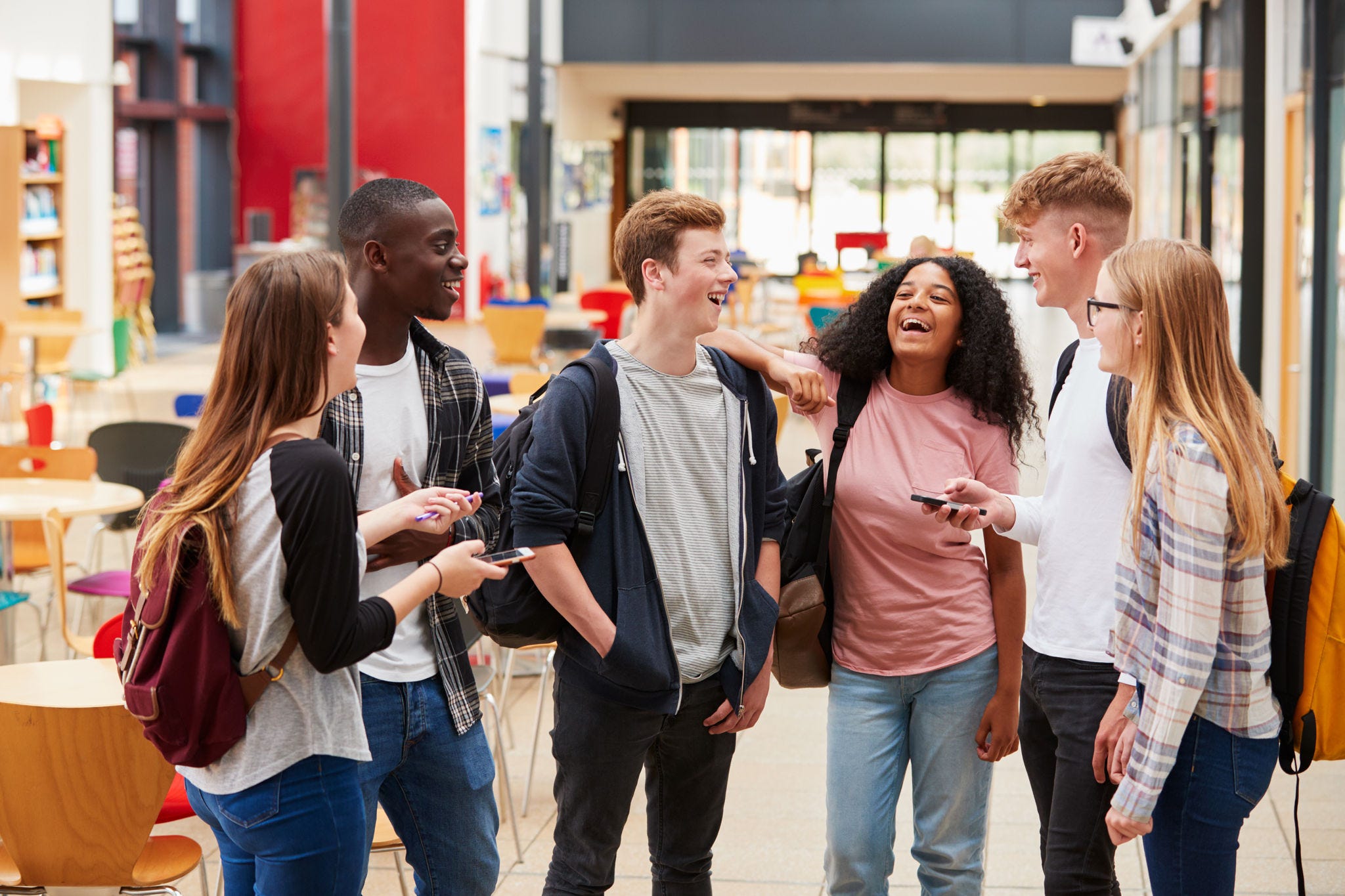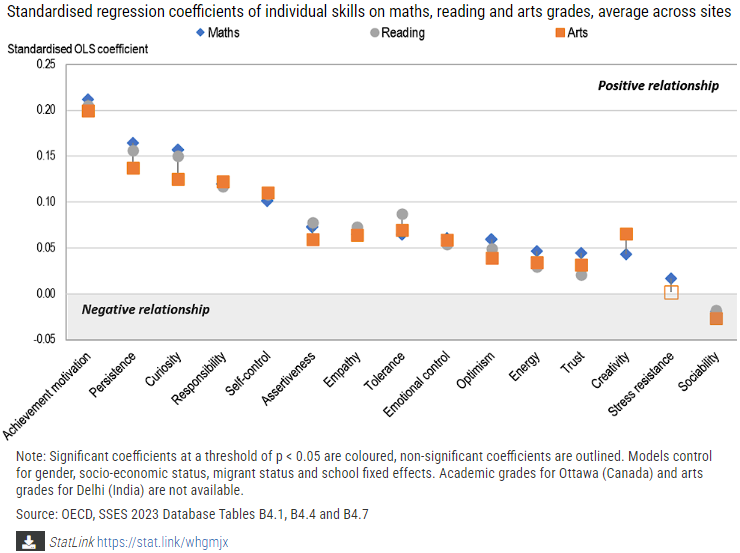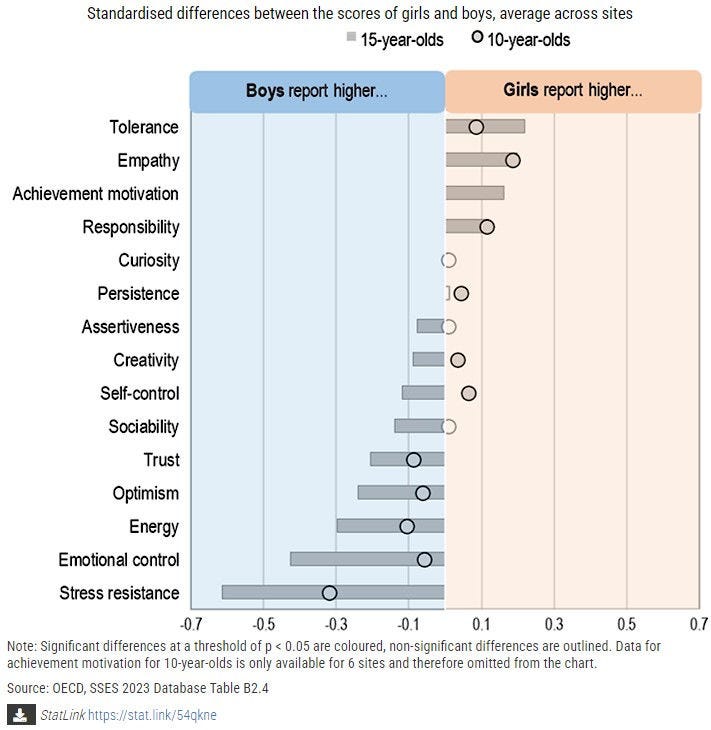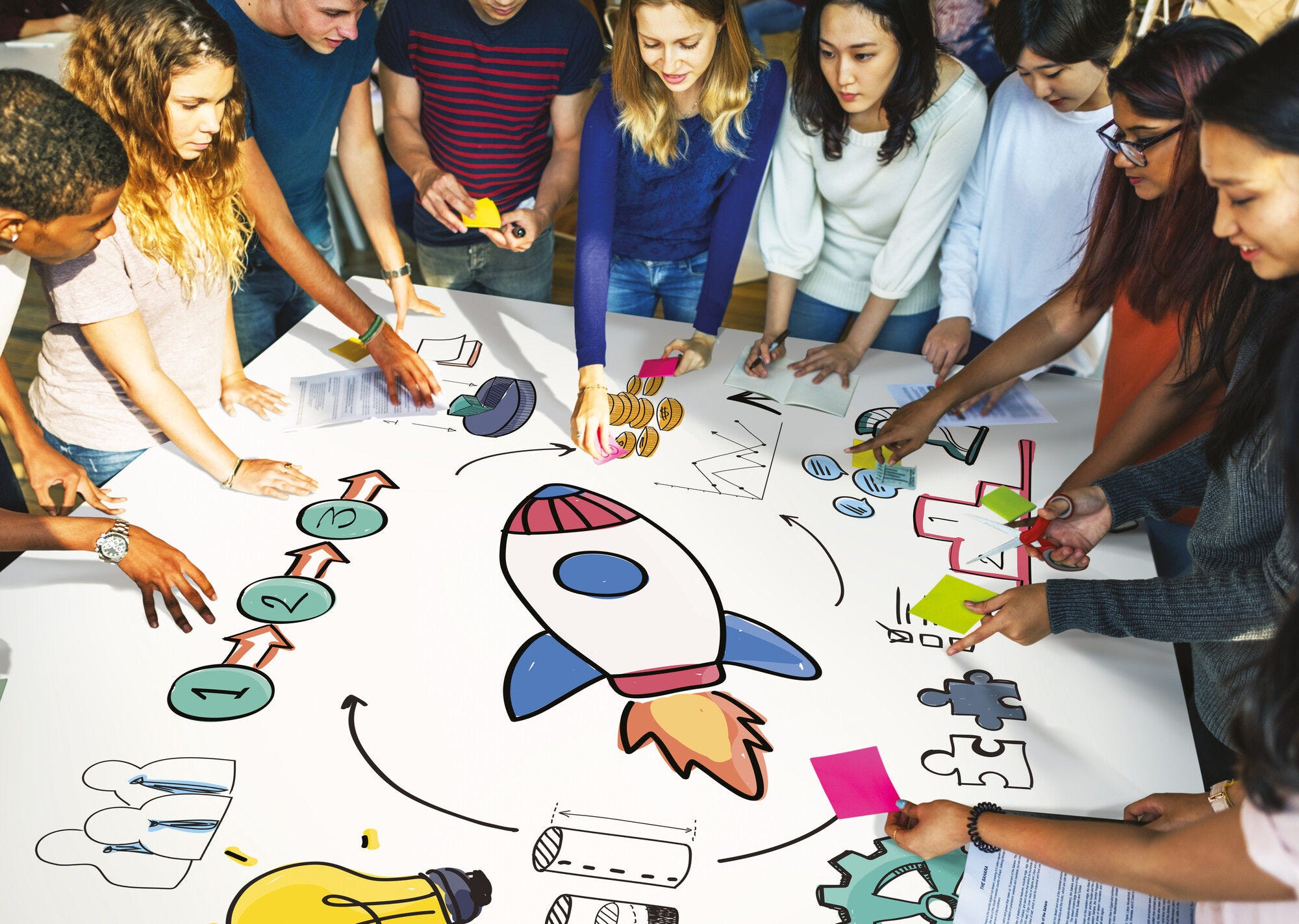Higher levels of nearly all social and emotional skills are linked to greater academic achievement in mathematics, reading, and arts, alongside lower rates of tardiness and skipping school. Task performance skills, such as persistence and self-control, and curiosity, have the strongest links to these outcomes. These skills were linked to better educational outcomes across various demographics, including 10- and 15-year-olds, both boys and girls and socio-economically disadvantaged and advantaged students. In addition, students with greater social and emotional skills, particularly emotional regulation skills, energy, and trust, tend to engage in healthier behaviours and report greater satisfaction with their lives, relationships, and body image.
Social and emotional skills
Social and emotional skills – such as self-control, stress resistance, co-operation, sociability, and curiosity – are competencies that support key life outcomes, including health and well-being, academic achievement, and job performance. The Survey on Social and Emotional Skills (SSES) supports policymakers to identify conditions and practices that foster or hinder the development of social and emotional skills and assess how equitably these skills are distributed among students.

Key messages
Girls tend to report lower emotional regulation skills, particularly stress resistance, as well as lower energy, trust, and sociability compared to boys at age 15. Gender disparities in these skills largely emerge in adolescence, except for stress resistance, where differences between boys and girls are found at age 10 and grow wider by age 15 in all sites. On average, boys report lower tolerance, achievement motivation, empathy, and responsibility than girls at age 15. On average across sites, socio-economically disadvantaged students tend to report lower levels of all skills compared to their advantaged peers. These differences are largest for creativity, tolerance and curiosity, and skills related to engaging with others such as assertiveness, sociability, and empathy.
Students’ social and emotional skills are linked to their experiences at school. Students exposed to bullying tend to have lower levels of almost all social and emotional skills, particularly those related to emotional regulation, such as optimism, and trust. On the other hand, better relationships between students and teachers are linked to greater levels of these skills. Students who have the opportunity to participate in extra-curricular activities, such as sports club or artistic activities, also tend to report higher levels of creativity and curiosity, even after accounting for differences in participation by socio-economic background and gender.
Context
Relationships between social and emotional skills and students’ grades
Higher levels of almost all social and emotional skills are linked to better grades in mathematics, reading and arts. Task performance skills (achievement motivation, persistence, responsibility, and self-control) and curiosity are those with the strongest relationships with grades. For several other skills, including assertiveness, empathy and emotional control, there is more variation across sites in whether and how strongly these skills are linked to students’ grades.
Relationships between social and emotional skills and students’ maths, reading and arts grades

Average differences in social and emotional skills by gender
Girls and boys evaluate their social and emotional skills differently and these differences are more pronounced among older students. At age 15, Girls tend to report lower emotional regulation skills (stress resistance, optimism, and emotional control), energy, trust, and sociability than boys, while boys tend to report lower tolerance, achievement motivation, empathy, and responsibility.
Gender differences in social and emotional skills

Related publications
Programmes and projects
-
The OECD Survey on Social and Emotional Skills is an international survey that identifies and assesses the conditions and practices that foster or hinder the development of social and emotional skills for 10- and 15-year-old students.Learn more
-
Large-scale assessments of social and emotional skills mainly use students’ self-assessments, which have some flaws in terms of comparability and, to some extend, validity and interpretability. Smaller studies are trialling more direct assessments of these skills. Work is needed to translate the innovations made in these trials and test them on larger, international scales. » A better understanding of social and emotional skills will lead to better inclusion of these skills in education.Learn more
-
PISA is the OECD's Programme for International Student Assessment. PISA measures 15-year-olds’ ability to use their reading, mathematics and science knowledge and skills to meet real-life challenges.Learn more
-
Understanding the nature of 21st Century childhood is crucial for an education that is increasingly expected to support students to thrive in both a digital and non-digital world, delivering academic learning while also building physical and emotional well-being. This has implications for the skills, capacity and resources required.Learn more
-
The Centre for Educational Research and Innovation (CERI) provides and promotes international comparative research, innovation and key indicators, explores forward-looking and innovative approaches to education and learning, and facilitates bridges between educational research, innovation and policy development.Learn more
-
The Education Policy Outlook is an analytical observatory that monitors the evolution of policy priorities and policy developments from early childhood education to adult education, mainly among OECD education systems, to provide a comparative understanding of how policies are evolving, and how they can be best implemented or improved over time.Learn more
-
The OECD’s programme on education and skills policy support policymakers in their efforts to achieve high-quality lifelong learning, which in turn contributes to personal development, sustainable economic growth, and social cohesion.Learn more
-
OECD Future of Education and Skills 2030 aims to build a common understanding of the knowledge, skills, attitudes and values students need in the 21st century.Learn more
-
The Research, Development and Innovation (RDI) programme established by the PISA Governing Board in 2018 explores how different areas of the assessment programme (e.g. test design, scoring methodologies) can be improved.Learn more
-
The PISA-based Test for Schools provides school-level estimates of performance and information about the learning environment and students’ attitudes gathered from student questionnaires. Find out more and how schools and their networks can take part.Learn more
-
Preparing for the future means taking a careful look at how the world is changing. Reflecting on alternative futures helps anticipate and strategically plan for potential shocks and surprises.Learn more







